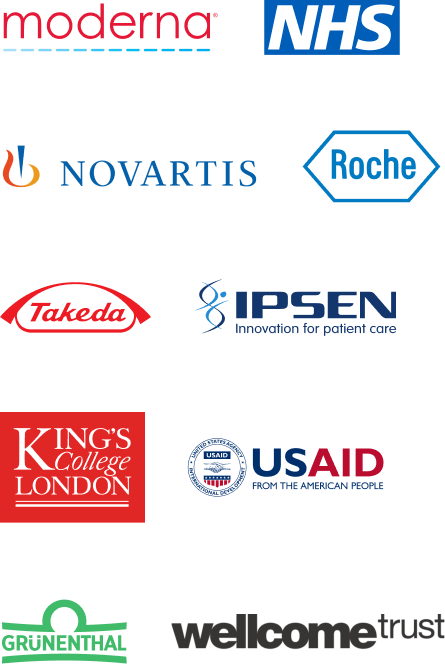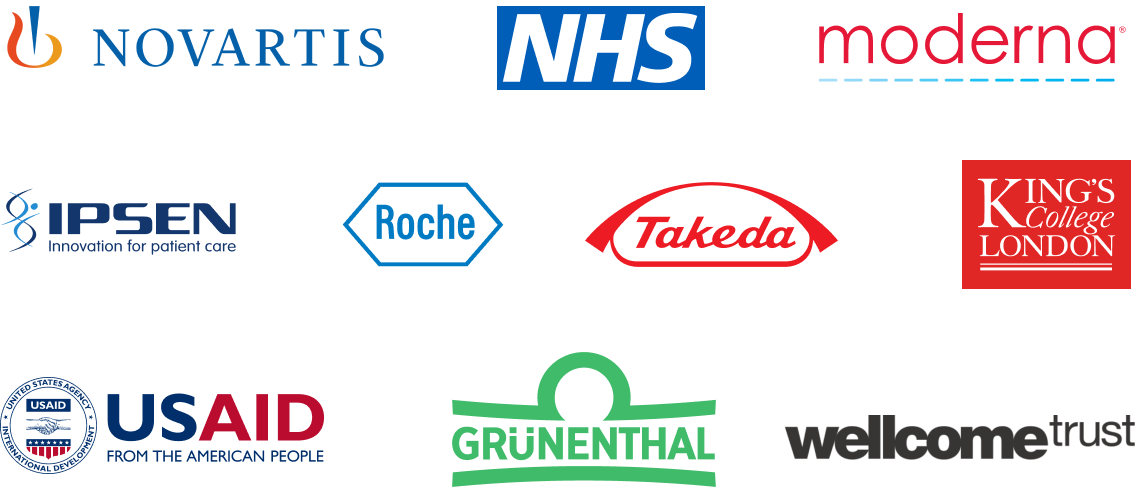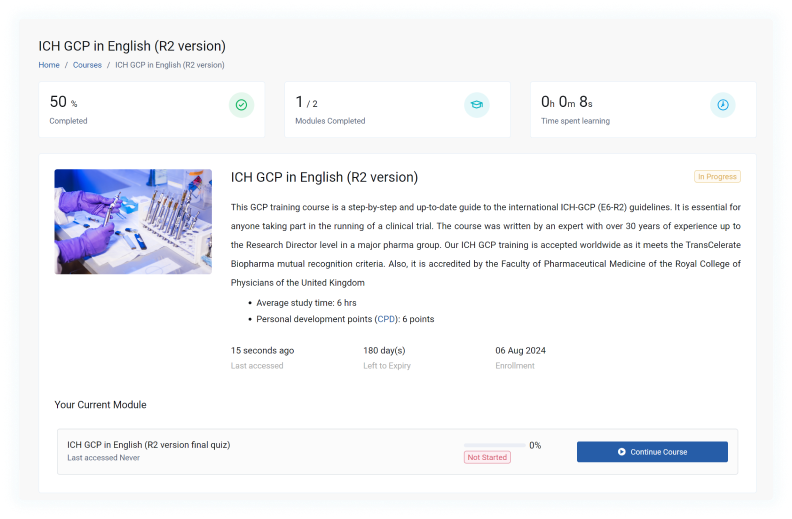Course Syllabus
- What is GCP
- Why is ICH GCP Important
- The Principles of ICH GCP
- Additional Learning Points
- Documentation and Version Control
- Quality Assurance (QA)
- Key Resources
- Introduction: Part 1
- Responsibilities of the CA
- Responsibilities of the IEC
- Subject Informed Consent Forms (ICF): Part 1
- Subject Informed Consent Forms (ICF): Part 2
- Composition, Functions, Operations, Procedures, and Records
- Introduction
- Investigator Responsibilities
- Investigator Qualifications and Agreements
- Adequate Resources
- Medical Care of Trial Subjects: Part 1
- Medical Care of Trial Subjects: Part 2
- Communication with IRB/IEC
- Compliance with the Protocol
- Investigational Medicinal Products
- Randomisation Procedures and Un-blinding
- Informed Consent of Trial Participants: Part 1
- Informed Consent of Trial Participants: Part 2 - The Debate on Consents
- Informed Consent of Trial Participants: Part 3 - Obtaining Consent of Subjects Who Cannot Read or Write
- Informed Consent of Trial Participants: Part 4 – Obtaining Consent of Minors and “Mentally Incompetent” Subjects
- Informed Consent of Trial Participants: Part 5 – Obtaining Consent: Incapacitated Subjects
- Informed Consent of Trial Participants: Part 6 – Updating Consent
- Records and Reports: Introduction
- Records and Reports: Study Site Files
- Records and Reports: Updates & Amendments
- Records and Reports: Source Documents
- Records and Reports: Financial Information
- Records and Reports: The Case Record Form
- Records and Reports: Recording Subject Data
- Premature Termination or Suspension of a Trial
- Progress Reports and Final Reports by Investigator
- Archiving
- Introduction
- Quality Management: Part 1
- Quality Management: Part 2
- QA and QC (Quality Assurance and Quality Control): Introduction
- QA and QC (Quality Assurance and Quality Control): Standard Operating Procedures
- QA and QC (Quality Assurance and Quality Control): Agreements & Contracts
- Contract Research Organisations
- Medical Expertise
- Trial Design
- Trial Management, Data Management, and Record Keeping: Part 1 – Research Management
- Trial Management, Data Management, and Record Keeping: Part 2
- Trial Management, Data Management, and Record Keeping: Part 3
- Trial Management, Data Management, and Record Keeping: Part 4 – Electronic Data Systems
- Trial Management, Data Management, and Record Keeping: Part 5 – Record Keeping
- Investigator Selection: Introduction
- Investigator Selection: Permissions
- Investigator Selection: Responsibilities
- Investigator Selection: Compensation
- Financing
- Notification/ Submission to Regulatory Authorities
- Gaining CA Approval in the EU
- Confirmation of Review by IRB/IEC
- Information on IMP
- Manufacturing, Packaging, Labelling, and Coding Investigational Products: Part 1
- Manufacturing, Packaging, Labelling, and Coding Investigational Products: Part 2
- Supplying and Handling Investigational Products
- Record Access
- Audit and Inspection
- Noncompliance
- Premature Termination or Suspension of a Trial
- Clinical Trial/Study Reports
- Multicentre Trials
- Introduction
- Monitoring: Part 1
- Monitoring: Part 2 – Monitor Responsibilities
- Monitoring: Part 3 - The Follow-up Visit
- Monitoring: Part 4 – Review of the Investigational Medicinal Product
- Monitoring: Part 5 – Complying with the Protocol, Amendments, SOP and Guidance
- Monitoring: Part 6 - Verifying Informed Consent
- Monitoring: Part 7 - The Case Record Form (CRF) and Source Documents
- Monitoring: Part 8 - Verifying Subject Data
- Monitoring: Part 9 – Errors
- Monitoring: Part 10 – Completion of the Monitoring Visit
- The Monitoring Report & Plan
- Quality Management - Centralised Monitoring
- Fraud and Misconduct
- Introduction
- Adverse Drug Rection Reports: Part 1 – Adverse Events (AEs)
- Adverse Drug Rection Reports: Part 2 – Serious Adverse Events
- Adverse Drug Rection Reports: Part 3
- Adverse Drug Rection Reports: Part 4 – Adverse Events of Special Interest
- Adverse Drug Rection Reports: Part 5 – Periodic Safety Reports
- Adverse Drug Rection Reports: Part 6
- Introduction
- Protocol Structure and Content
- Introduction
- Investigator Brochure Structure and Content
- Introduction
- Essential Documents
- Archiving
- Documents to be Present Pre-Study
- Documents to be Present During the Study
- Documents to be Present Post-Study
- Introduction
- Argentina
- Brazil
- Chile
- Colombia
- Mexico
- Peru
- Glossary & Abbreviations
- Useful Reference Documents List
Our GCP certified customers


Good Clinical Practice (GCP) training is a vital educational programme designed to equip clinical trial professionals and researchers with the necessary knowledge of ethical and scientific standards essential for conducting top-tier clinical trials. This comprehensive course covers the globally recognised guidelines set forth by the International Council for Harmonisation (ICH).
The core objectives of GCP training include:
- Safeguarding the rights, safety, and welfare of human participants
- Upholding the credibility and reliability of clinical trial data
- Fostering uniform, high-calibre practices across all facets of clinical research
Our Whitehall Training GCP course thoroughly explores these crucial areas, offering learners a robust grounding in both the theoretical principles and practical applications of Good Clinical Practice. By completing this training, participants gain the skills and understanding needed to navigate the complex landscape of clinical trials with confidence and competence.
Absolutely. For anyone looking to engage in clinical trials research, GCP certification is not just valuable—it's essential.
Even if you're simply keen to broaden your knowledge of the clinical research landscape, obtaining GCP certification offers numerous benefits:
- It demonstrates your commitment to upholding global research standards
- Your research gains increased credibility and quality
- You'll be better equipped to safeguard the rights and wellbeing of trial participants
- Your career prospects in the clinical research sector could significantly improve
Our Whitehall Training Good Clinical Practice Course goes beyond mere certification. We provide you with practical, hands-on skills that enable you to apply GCP principles effectively in real-world scenarios. This comprehensive approach ensures you're not just certified, but truly competent in GCP implementation.
Good Clinical Practice (GCP) training is crucial for a broad spectrum of professionals involved in clinical research. While not everyone in the field requires certification, it's highly beneficial for many roles:
- Lead Researchers and Their Teams: This includes principal investigators and co-investigators who oversee the conduct of trials at research sites.
- On-site Clinical Trial Personnel: Research coordinators, study nurses, and other staff members who manage day-to-day trial operations fall into this category.
- Trial Oversight Professionals: Individuals from sponsoring organisations and Contract Research Organisations (CROs) who plan, initiate, and report on trials.
- Regulatory Compliance Officers: Those tasked with monitoring and assessing trial compliance with established standards.
- Ethics Review Committees: Members responsible for scrutinising and approving trial protocols before implementation.
- University and Research Centre Staff: Employees ensuring that institutional research meets international benchmarks.
- Publicly Funded Researchers: All investigators and support staff engaged in government-funded clinical trials.
Whitehall Training's Good Clinical Practice Course is designed to address the needs of this diverse audience. It offers role-specific knowledge alongside fundamental GCP principles, making it an excellent choice for both experienced professionals and those new to clinical research who wish to enhance their skills and improve their understanding of clinical trial operations.
Our Good Clinical Practice (GCP) training programme is designed to thoroughly cover the ICH-GCP (E6-R2) international guidelines, ensuring you meet the necessary training requirements for participation in global clinical trials. We offer this comprehensive course in multiple languages to cater to a diverse audience.
This training serves as a contemporary, step-by-step guide to the ICH-GCP (E6-R2) guidelines, making it an indispensable resource for anyone involved in clinical trial management. The course content has been meticulously crafted by an industry veteran with more than three decades of experience, including a tenure as Research Director at a leading pharmaceutical company.
We're proud to offer a course that's received accreditation from the Faculty of Pharmaceutical Medicine of the Royal College of Physicians of the United Kingdom. In addition to English, you can access the course in a variety of languages including German, Bulgarian, French, Italian, Japanese, Polish, Portuguese, Russian, and Spanish.
To address specific regional needs, we've developed tailored versions of the course that align with the regulatory frameworks of Australia, the UK, the US, France, Germany, and Latin America. These regional adaptations ensure that participants gain relevant, market-specific knowledge.
Our course stands out for its user-friendly, visually engaging format, which facilitates easy reference to the ICH-GCP E6 document. Drawing from the author's wealth of experience, it provides practical insights into the real-world application of GCP principles. As an added benefit, participants can earn 6 CPD points upon completion.
By choosing our GCP course, you're opting for a high-quality, accredited training programme that combines comprehensive content with practical insights, all presented in an accessible format.
Indeed, our GCP course has received certification from a prestigious organisation in the field. The Faculty of Pharmaceutical Medicine, which is part of the Royal College of Physicians, has accredited our course. This institution is well-known in the UK for being the professional body representing pharmaceutical physicians and has been establishing stringent research standards since 1989.
The endorsement from such a respected body serves as a testament to the quality of our course. It assures participants that the content and delivery meet exacting industry and academic benchmarks. When you complete this course, you'll receive a certification that is widely acknowledged within the pharmaceutical and clinical research sectors.
The price of GCP certification can fluctuate based on several key factors:
- Official recognition: Has the course received approval from respected organisations?
- International compliance: Does the training fulfil ICH requirements, allowing researchers to engage in global clinical trials?
- Content quality: Is the material current and authored by industry professionals?
- Availability: For how long can students access the course materials?
At Whitehall Training, our GCP course is priced at £79, reflecting its high standards across these areas:
- Recognition: The Royal College of Physicians has accredited our course, awarding 6 CPD points.
- Global acceptance: Upon completion, researchers are equipped to participate in clinical trials worldwide, in line with ICH E6(R2) guidelines.
- Expert-led content: Our course material is developed by Lucy Parker, our GCP specialist with over 10 years of experience leading research in major institutions, including the NHS.
- Ongoing access: We support continuous professional development by offering unlimited access to course resources.
For group bookings, we provide a 10% discount on purchases of 5 licences at checkout. If you're interested in larger group discounts, please contact our team for a tailored quote.
Indeed, some GCP training options are available at no cost. However, it's important to be aware of their potential drawbacks:
- The content may be of lower quality, lacking accreditation and potentially outdated
- These courses typically don't offer official certification, which is often required for conducting clinical research
That being said, these free resources can serve a purpose. For individuals seeking a basic introduction to Good Clinical Practice principles and concepts, they may provide a useful starting point. However, for those intending to actively participate in clinical research, a certified GCP course is generally more beneficial.
Our GCP course offers a comprehensive exploration of the essential principles and practices required for conducting ethical and scientifically robust clinical trials. We’ve structured the programme to cater to both newcomers and experienced professionals, with content that spans from fundamental concepts to more advanced topics.
The course curriculum encompasses a wide range of crucial subjects, including:
- The historical context and core principles of GCP
- Delineating the duties of investigators, sponsors, and monitors
- Navigating ethical considerations and informed consent procedures
- Crafting and adhering to study protocols
- Managing safety reports and adverse events
- Ensuring data integrity and quality control
- Navigating regulatory landscapes and interacting with authorities
- Maintaining essential documentation and records
- Proper handling of investigational medicinal products
- Best practices in site management and monitoring
We’ve designed our training to be both engaging and effective, utilising a variety of e-learning techniques. Participants can expect:
- In-depth educational content
- Authentic case studies drawn from real-world scenarios
- Engaging quizzes and knowledge assessments
- Practical examples that illustrate best practices
- Opportunities for personal reflection and practical application of learned concepts
This carefully crafted approach ensures that learners can readily absorb and apply the principles of Good Clinical Practice in their professional roles.
Securing your GCP certificate is a simple two-stage process:
- Work through the interactive educational content of the course.
- Successfully pass the online assessment at the end.
Feeling apprehensive about the GCP test? There’s no need to worry. The examination is merely a necessary step to confirm your readiness for research participation. Should you not succeed on your first attempt, you can easily revisit our comprehensive resource library to address any knowledge gaps, then have another go at the test.
Our Whitehall Training Good Clinical Practice Course is designed to make this process as smooth and informative as possible, ensuring you’re well-prepared for both the exam and your future role in clinical research.
Our Good Clinical Practice course is structured to ensure participants not only absorb the material but can effectively implement it in real clinical research environments. The course employs a variety of evaluation methods:
-Continuous Evaluation: As learners progress through the modules, they encounter interactive quizzes and scenario-based exercises. These serve to solidify crucial concepts and provide participants with a means to assess their comprehension along the way.
-Comprehensive Final Assessment: The course concludes with an in-depth examination that thoroughly evaluates the learner's understanding of GCP principles and practices. This assessment covers all key areas from the course, including:
- Ethical considerations in clinical studies
- Regulatory compliance and requirements
- Clinical trial roles and responsibilities
- Quality management and data integrity
- Adverse event handling and safety reporting
-Practical Knowledge Application: The final assessment includes questions designed to test the learner's ability to apply GCP principles to realistic clinical trial situations.
To ensure learners are fully equipped to conduct trials, successful completion of the final assessment is mandatory to obtain GCP certification.
Learners may attempt the final assessment as many times as necessary, ensuring they achieve the required level of proficiency and become GCP qualified.
Our Good Clinical Practice course is tailored to suit a broad spectrum of professionals in the clinical research field. Whilst a foundational grasp of clinical research can be advantageous, it's not a mandatory requirement. We’ve carefully crafted the course content to be accessible and beneficial for individuals with varying levels of expertise and diverse roles within the clinical trial industry.
This training programme is particularly well-suited for:
- Research Coordinators in clinical settings
- Lead Investigators and their supporting team members
- Nurses specialising in research
- Professionals managing clinical trials
- Specialists in data management and biostatistics
- Individuals working in regulatory affairs
- Experts in quality assurance
- Members serving on ethics committees
- Pharmacists engaged in clinical trial work
- Personnel from sponsoring organisations and Contract Research Organisations (CROs)
Whether you're taking your first steps in clinical research or simply looking to update your existing knowledge, our course offers a thorough exploration of Good Clinical Practice principles and their real-world applications. The content is designed to be both informative and practical, ensuring that participants from all backgrounds can gain valuable insights and skills.
Indeed, our Good Clinical Practice course is fully web-based, providing learners with unparalleled convenience and adaptability. The online format offers several key benefits:
-Personalised learning tempo: Students can navigate through the course content at a speed that best suits their individual needs and timetable. This approach enables a more thorough understanding of the material without the constraints often associated with traditional classroom settings.
-Unrestricted availability: The course can be accessed round-the-clock from any internet-enabled device. Whether you're at your desk, relaxing at home, or on the move, you can engage with the course material whenever and wherever it's most convenient for you.
The International Council for Harmonisation, or ICH, plays a crucial role in shaping global pharmaceutical research standards, including Good Clinical Practice (GCP). Here's what you need to know:
ICH is a collaborative effort, uniting regulatory bodies and pharmaceutical industry experts.
Its primary goal is to establish universally accepted guidelines for clinical trials.
The ICH GCP guidelines are designed to safeguard trial participants and ensure the reliability of research data.
These guidelines are regularly reviewed and updated, with the current version being ICH GCP E6(R2).
Compliance with ICH guidelines is essential for conducting valid clinical trials worldwide. Our Good Clinical Practice course at Whitehall Training has been meticulously crafted to cover all 13 fundamental ICH GCP principles in depth. By completing this course, you'll gain the knowledge needed to conduct research that aligns with these global standards, ensuring your trials meet international requirements.
ICH Good Clinical Practice E6 (R2) is the latest iteration of the Good Clinical Practice guidelines, published in 2016 by the International Council for Harmonisation of Technical Requirements for Pharmaceuticals for Human Use. This update marks a pivotal shift in GCP standards, adapting to the evolving nature of clinical research.
Grasping the principles of ICH GCP E6 (R2) is essential for all clinical research professionals for several reasons:
It sets the contemporary global benchmark for ethical and scientifically robust clinical trials.
Regulatory bodies across the globe often mandate adherence to these guidelines.
It plays a crucial role in safeguarding human participants and ensuring the integrity of trial data.
Many research entities and sponsors expect their teams and collaborators to be well-versed in and follow these updated guidelines.
The Whitehall Training Good Clinical Practice Course offers comprehensive coverage of ICH GCP E6 (R2). Our programme ensures that learners gain a thorough understanding of these updated guidelines, enabling them to implement them effectively in their clinical research endeavours.
The International Council for Harmonisation's Good Clinical Practice (ICH GCP) framework is underpinned by 13 essential principles that establish the ethical and scientific benchmarks for clinical research. These crucial principles encompass:
Upholding ethical standards
Ensuring benefits surpass risks
Safeguarding participants' rights and wellbeing
Providing comprehensive supporting evidence
Developing scientifically robust protocols
Obtaining IRB/IEC endorsement
Ensuring qualified medical oversight
Engaging competent investigators
Securing informed consent
Maintaining precise data documentation and reporting
Preserving confidentiality
Adhering to good manufacturing practices for investigational products
Implementing quality assurance systems
The Whitehall Training Good Clinical Practice course offers a comprehensive exploration of these principles, equipping you with the knowledge to effectively implement them in practical clinical research scenarios. Our in-depth coverage ensures that you'll gain a thorough understanding of how these principles shape and guide the conduct of clinical trials, enabling you to navigate the complexities of research ethics and regulatory compliance with confidence.

